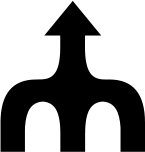
I recently gave a
presentation on mashups. People were interested, and most of all, they realized that there's a lot one can do with
mashups. I believe that librarians and information professionals need to know what mashups are, particularly since they are an essential element of
Web 2.0. A mashup thus does exactly what Web 2.0 technology is supposed to: they allow greater interactivity, more user control of information, user personalization, the development of online communities, and greater democratic management of information.
Why are mashups relevant for information professionals and librarians?
Matthew Dames lists two reasons: First,
social software tools such a
s mashups are the perfect opportunity to extend its reach beyond the library building, particularly in a time when there is real fear that patrons are no longer use reference services as vehemently as they once did. Second: job security. Social software tools such as mashups allow librarians to “reclaim” areas of influence and expertise in the organization that have been ceded to the IT department.
I'd add one more, and it's pretty obvious: the main goal of the
health librarian (and all librarians, for that matter) is to serve his or her user. Mashups help achieve that goal, and then some.







